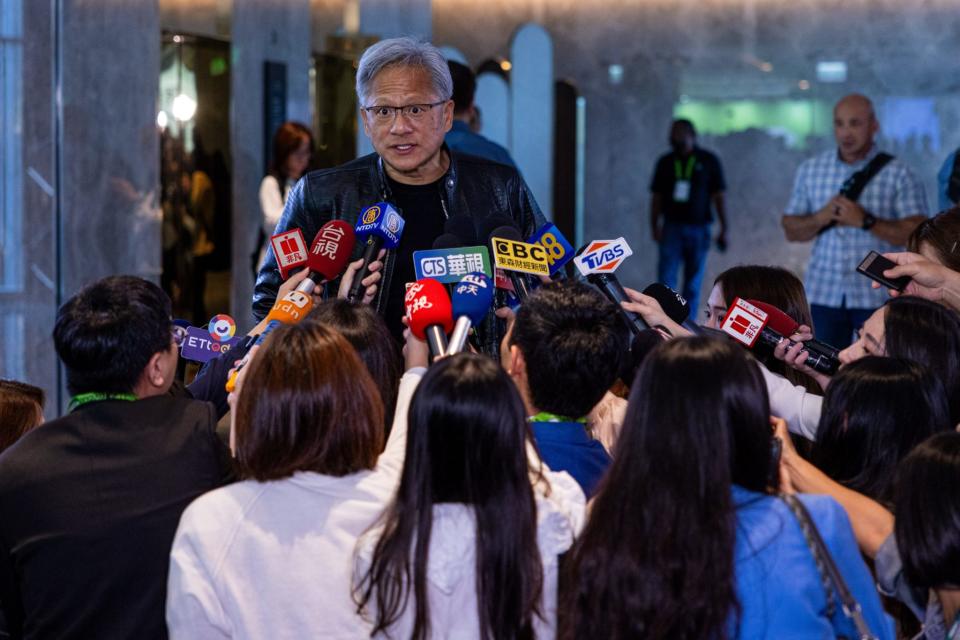Nvidia alone accounts for more than a third of the S&P 500’s gains this year—and it’s a big risk for investors, top economist warns

Nvidia stock has continued its stunning rally this year, sending the AI chip leader's valuation past $3 trillion and making it an even bigger presence in the S&P 500.
In fact, 34.5% of the S&P 500's market cap gains so far this year can be attributed to Nvidia alone, according to Apollo Chief Economist Torsten Sløk.
Shares have soared 166% in the year to date and are up more than 200% from this time a year ago. That's as the artificial intelligence craze has gripped Wall Street, and Nvidia's quarterly earnings show no sign that the rush to stock up on AI chips isn't slowing down.
But relying so much on one stock also represents a big risk, Sløk warned.
"Such a high concentration implies that if NVIDIA continues to rise, then things are fine," he wrote in a note on Wednesday. "But if it starts to decline, then the S&P 500 will be hit hard."
Because the S&P 500 is weighted by market cap, even relatively minor wobbles from behemoths like Nvidia, Apple, and Microsoft can move the needle on the broad stock market index.
And as retail investors increasingly load up on S&P 500 index funds, that means exposure to Nvidia—for better or for worse—is growing as well.
"The bottom line is that the extreme concentration of returns in the S&P 500 makes investors more vulnerable to single headlines impacting the one stock driving index returns," Sløk added.
This isn't the first time he has sounded the alarm on the stock market's dependence on Big Tech.
When Nvidia's market cap topped $2 trillion for the first time ever earlier this year, Sløk compared tech valuations to the bubble seen during the dot-com era.
“The top 10 companies in the S&P 500 today are more overvalued than the top 10 companies were during the tech bubble in the mid-1990s,” he wrote at the time.
Others on Wall Street are also growing more skeptical about Nvidia's valuation and its attractiveness as an investment after the stock's epic rally.
But Nvidia stock bulls remain. Beth Kindig, lead tech analyst at the I/O Fund, sees more astronomical gains in the coming years, predicting its market cap will surge more than triple again to $10 trillion by 2030.
Meanwhile, Nvidia CEO Jensen Huang continues to surprise Wall Street, most recently by laying out a rapid cadence of new AI platforms.
Earlier this month, he said Nvidia plans to upgrade its AI accelerators every year as he announced the Blackwell Ultra chip for 2025 and a next-generation platform in development called Rubin for 2026.
This story was originally featured on Fortune.com

 雅虎香港財經
雅虎香港財經 